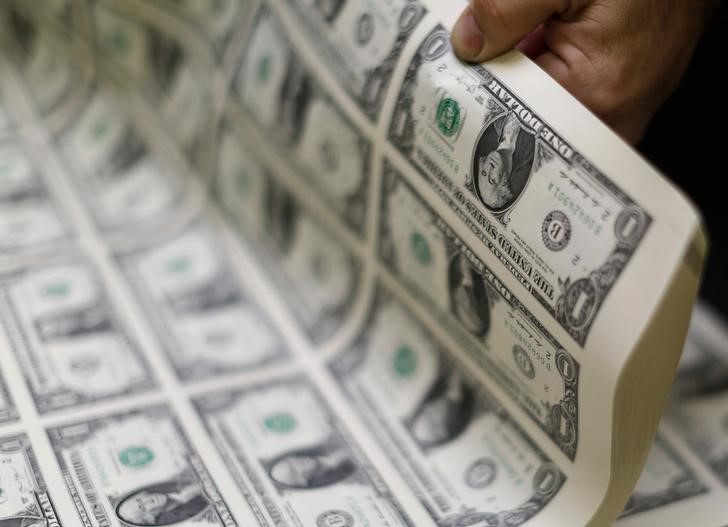* Dollar index trades near lowest levels since late March
* Sterling soars to more than 6-month highs
* Worries about French election, N. Korea loom in background
TOKYO, April 19 (Reuters) - The dollar index traded near three-week lows on Wednesday, dragged down by a resurgent sterling after British Prime Minister Theresa May called for an early general election ahead of Brexit negotiations.
The British currency sailed to more than six-month highs after May said the election would "secure the strong and stable leadership" position needed for talks with the European Union about terms for the looming exit.
The dollar index, which tracks the greenback against a basket of six rival currencies, edged up 0.1 percent to 99.548 .DXY , not far from its overnight low of 99.465, its deepest trough since March 28.
Sterling was steady on the day at $1.2845 GBP= after rising as high as $1.2908 on Tuesday, its highest since early October, as investors scurried to cover short positions.
"May's decision to hold a vote gave sterling a lift higher," said Masafumi Yamamoto, chief currency strategist at Mizuho Securities in Tokyo.
"In the background, we still have other issues such as North Korea, which could weigh on risk sentiment, as well as the French election," he said.
The failed North Korean missile test over the weekend was an attempt by the reclusive country to "provoke something," U.S. Defense Secretary Jim Mattis said on Tuesday, pledging that the United States will work with China to reduce tensions. dollar edged up 0.1 percent to 108.57 yen JPY= , while the euro was steady on the day at $1.0732 EUR= after riding sterling's coattails to three-week highs overnight.
French opinion polls show that far-right leader Marine Le Pen and centrist Emmanuel Macron qualifying next Sunday for the May 7 run-off, but the gap with conservative Francois Fillon and far-leftist Jean-Luc Melenchon has been tightening.
Downbeat U.S. economic data also pushed down U.S. Treasury yields and weighed on the dollar. U.S. homebuilding fell in March, and manufacturing output dropped for the first time in seven months. also continued to monitor U.S.-Japan economic talks for clues to the future direction of U.S. trade policy under President Donald Trump, who campaigned on a protectionist platform.
A senior government official said that Japanese Deputy Prime Minister Taro Aso and U.S. Vice President Mike Pence did not discuss currencies in the first round of the bilateral economic dialogue.
